How to Clean & Sterilize Vintage Mason Jars isn’t difficult. With a few steps, your old jars will be sparkly & ready to use.
As you may already know, I am obsessed with mason jars, especially vintage ones. Not only are they fantastic for home decor, but they are wonderful for storing about just anything. I will share with y’all How to Clean & Sterilize Vintage Mason Jars so you may use them in your home.
How do you clean old mason jars?
- Carefully place your old mason jars in the basin.
- Then, fill the basin with your mason jars, hot water, and a few squirts of Dawn dish soap.
- Next, use a non-abrasive sponge & wash the jars. Next, use a scrub brush to clean the inside of the jars.
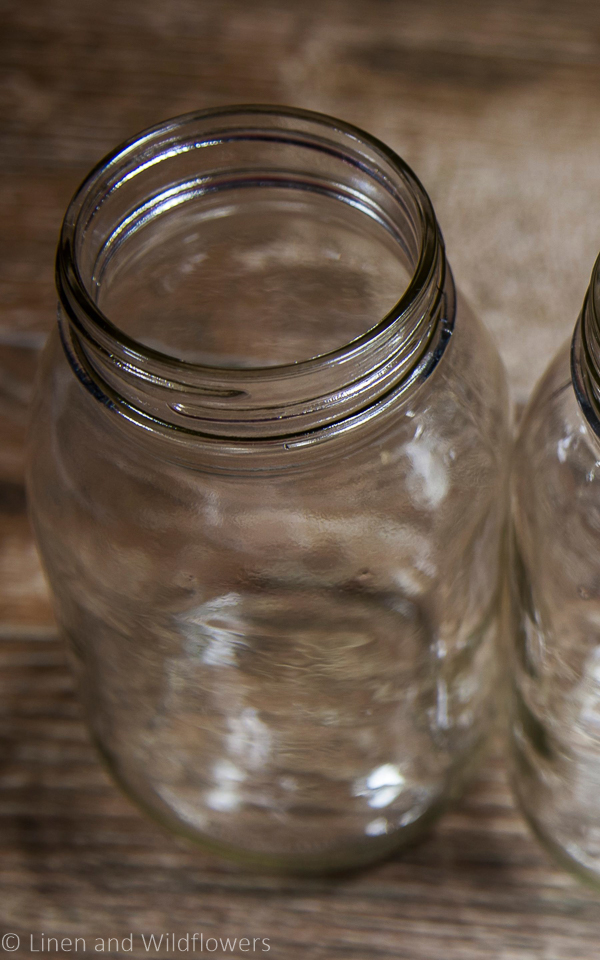
Can you use vintage mason jars for storing dry goods?
Yes! However, you want to ensure they are lead-free, and you will want to clean and sterilize them first. Also, be sure that the zinc lid is safe to use. I tend not to worry about the glass lids too much.
How to clean the metal (zinc) lids?
First, I soak the lids in a vinegar bath. Next, dry the lids well. Then use a lint-free cloth & use mineral oil to wipe on the lids. Do not leave any oil on the lids.
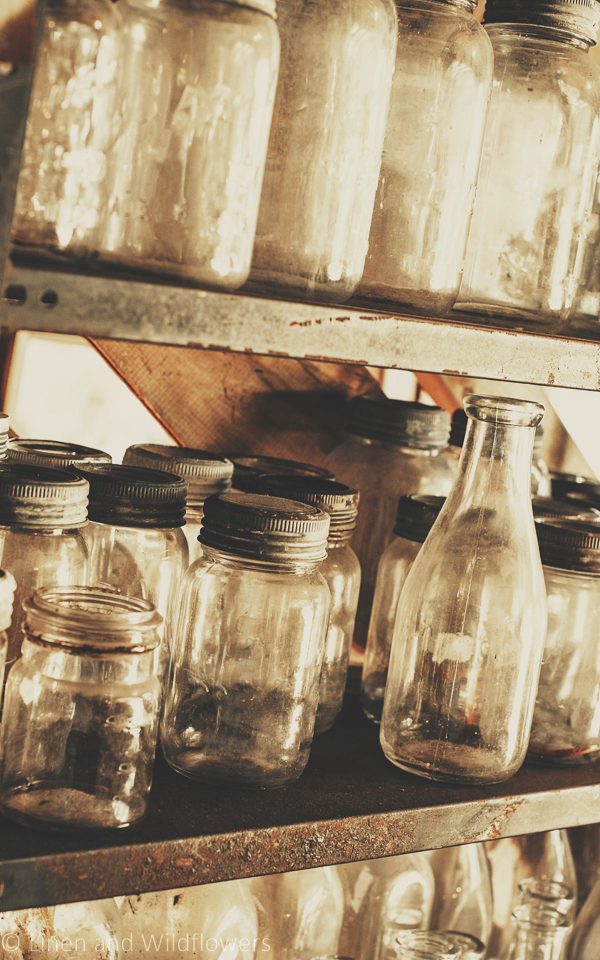
Tip: You can heat the vinegar to a warm temperature for quicker results.
Do old mason jars contain lead?
Ball jars are the most consistently Lead-free brand I have found. However, you may have to check for lead in Kerr mason jars.
Can you sterilize Mason jars in the dishwasher?
The short answer is, No! While you may be able to clean canning jars in the dishwasher, it doesn’t sterilize them. This is a misconception. So if you’re using a recipe that requires jars to be sterilized first, do not sterilize using the oven, dishwasher, or microwave. Instead, you must use the canner method for sterilization.
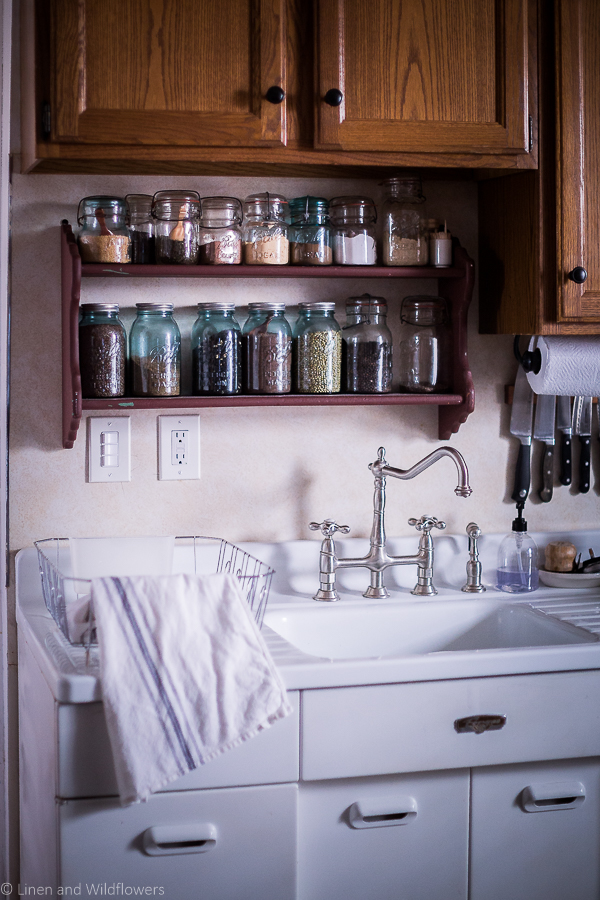
How do you vintage sterilize mason jars without boiling them?
To sterilize jars, they must be submerged in boiling water for 10 minutes. Therefore, when the processing time for canning food is 10 minutes or more (at 0-1,000 feet elevation), the jars will be sterilized during processing in the canner.
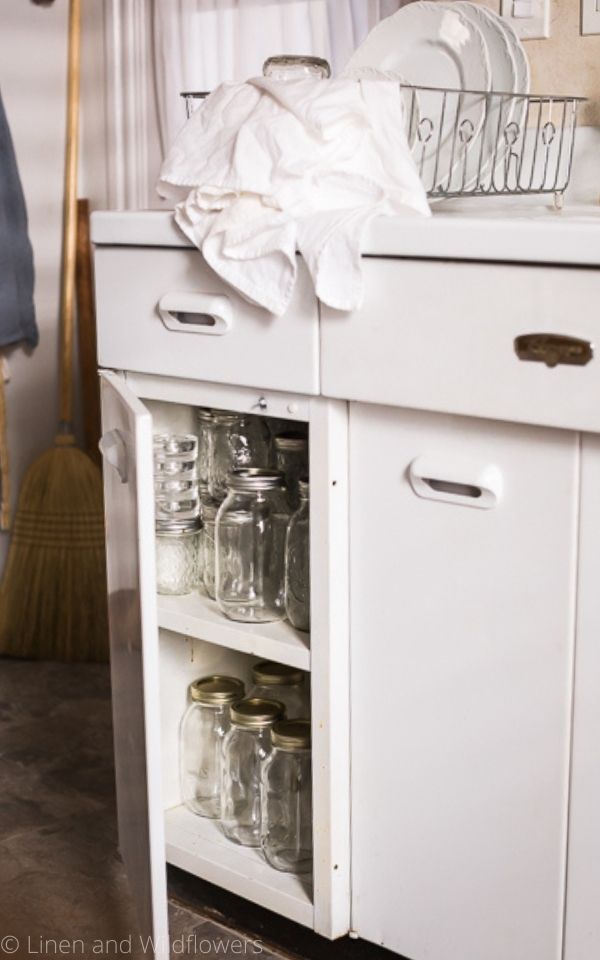
What happens if you don’t sterilize canning jars?
Sterilizing is a vital part of preserving to remove bacteria, yeasts, or fungi, therefore which is protecting the food you put into the jar. Dirty jars that are not correctly cleaned will contaminate the food and spoil quickly. Sterilizing is a quick and easy process, so it should never be overlooked.
Disclaimer: it is not recommended to use vintage or antique canning jars for food preservation.
I hope this post helps you give your old jars new life!
Until next time y’all,
 If you want to follow along on our home restoration/renovation plans and all of our exciting antique & thrift finds, be sure to check out Linen and Wildflowers on Facebook, Instagram, and Pinterest! And don’t forget to sign up for our newsletter to receive updates.
If you want to follow along on our home restoration/renovation plans and all of our exciting antique & thrift finds, be sure to check out Linen and Wildflowers on Facebook, Instagram, and Pinterest! And don’t forget to sign up for our newsletter to receive updates.
HERE ARE SOME RECOMMENDED POSTS THAT MAY FANCY YOUR INTEREST!
What is so special about Mason Jars
20 ways to Use Mason jars in the kitchen

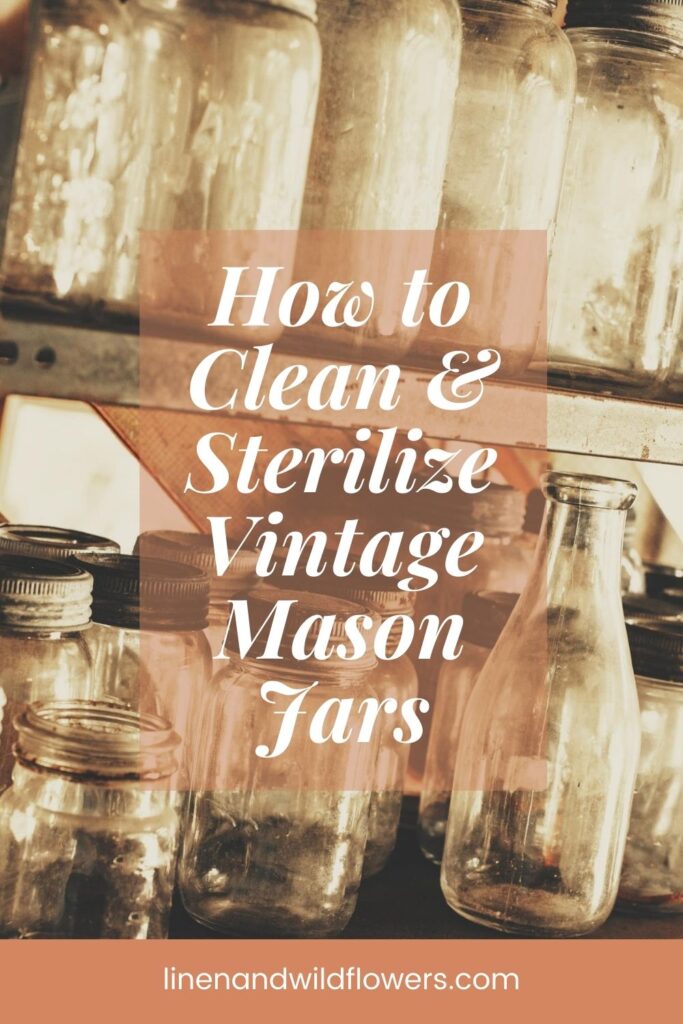
What a great post! We have a lot of old jars. Lots of good info.
Thank you so much!
This is so much valuable information. Sterile jars are a must when canning, and I actually learned a lot from this post! Thanks!
I am glad to be of help, thank you!
Once again I love the simple topics you come up with. I love vintage mason jars and use them for storage purposes as well. They’re so beautiful.
You are so sweet, thank you!